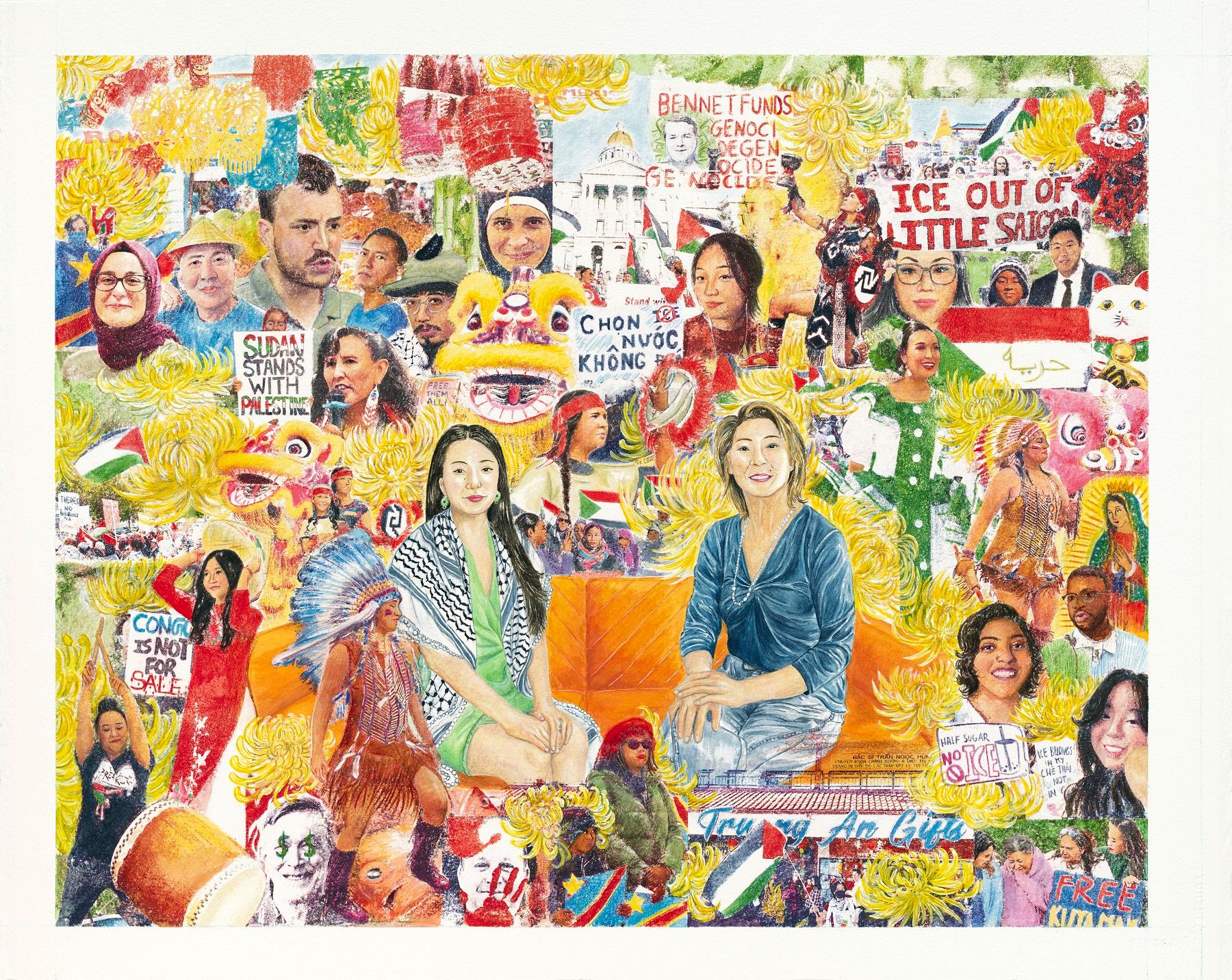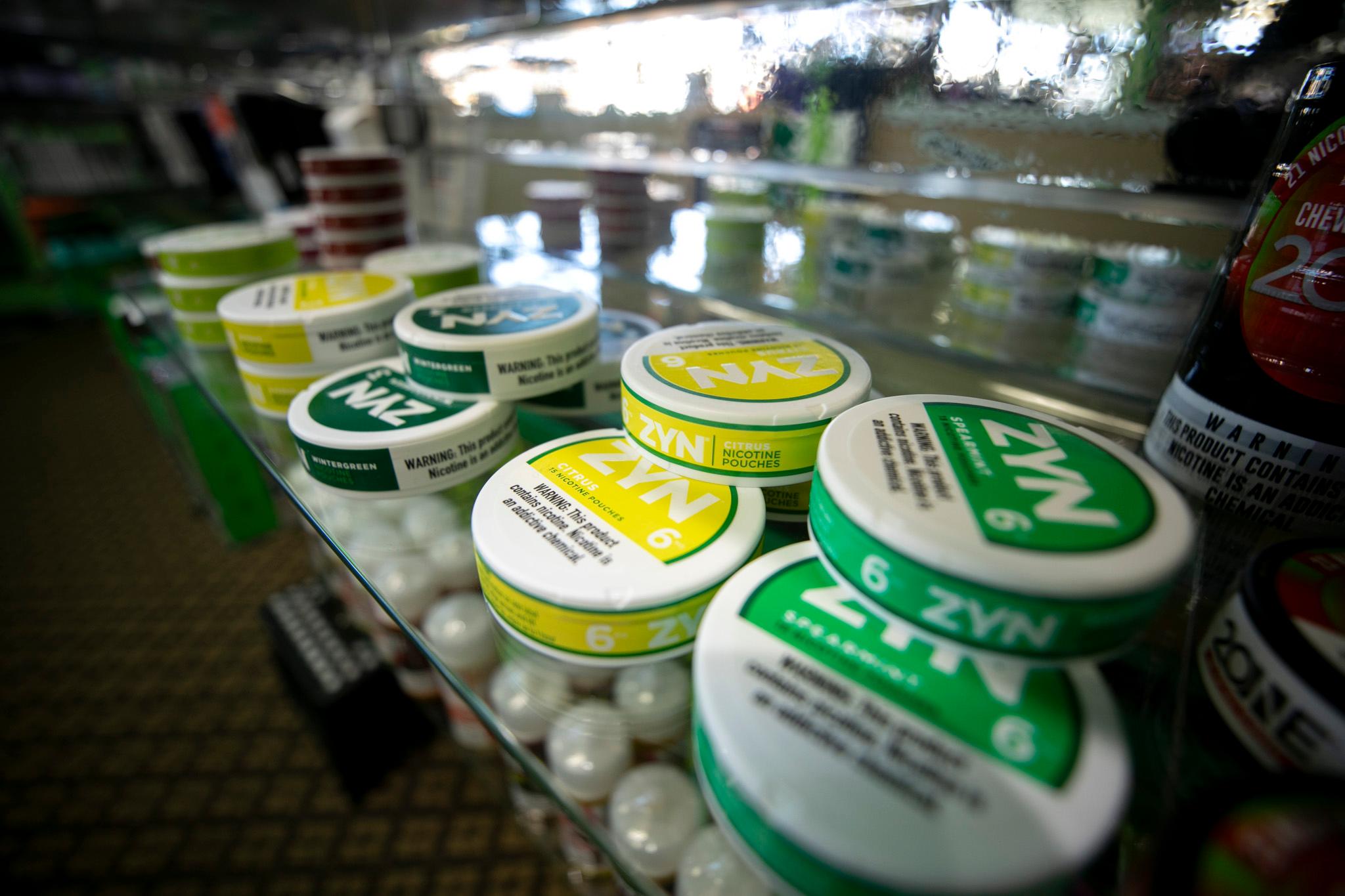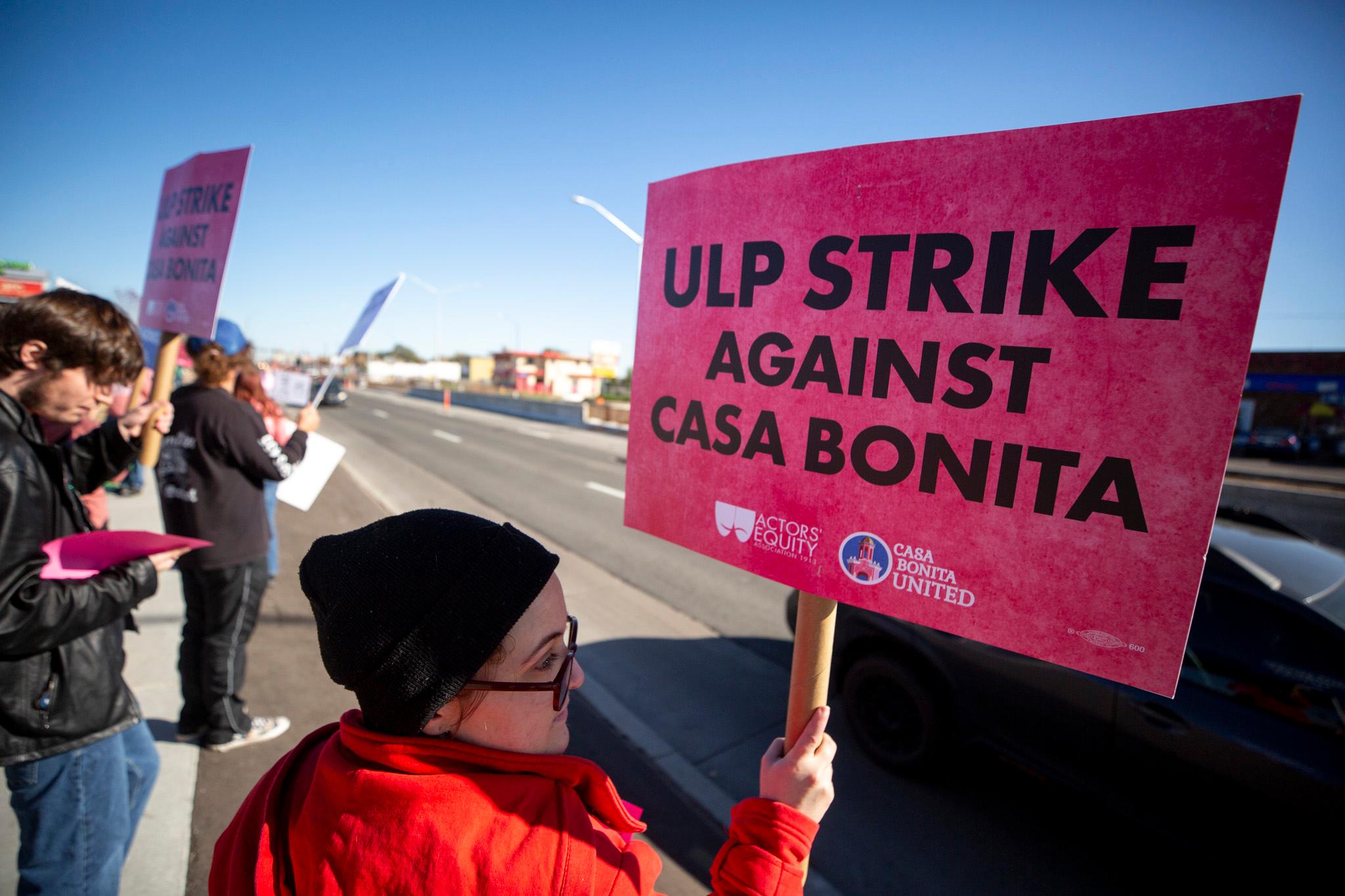
Updated at 9:51 a.m. on Friday, Oct. 10, 2025
Denver’s Referendum 310 will decide whether to keep or repeal Denver’s ban on flavored tobacco, including nicotine vaporizers that come in a range of fruity flavors.
If a majority of people vote “yes,” the city will continue to ban the products. If a majority vote “no,” the ban would be repealed and businesses would be allowed to sell the products again.
The full text of the ordinance is available here.
The Denver City Council banned the sales in December and Mayor Mike Johnson signed it. Opponents then started a petition drive to challenge the ban and successfully gathered nearly 11,000 valid signatures, enough to put the repeal on the ballot this year.
The ban, which affects some 575 retailers that sell the products in Denver, is already in effect, but city officials have said they wouldn’t enforce it until after the election.
Health advocates say banning flavored tobacco will reduce the chances that kids are tempted into lifelong addictions. Their opponents say that keeping the ban will hurt local businesses, with customers simply going to other cities to buy flavored products.
Thirteen other Colorado cities approved similar proposals in recent years. The list includes Aspen, Boulder, Breckenridge, Carbondale, Dillon, Eagle, Edgewater, Frisco, Glenwood Springs, Golden, Keystone, Silverthorne and Snowmass Village.
Denver is the first place in Colorado where voters will decide a potential repeal, so the result will be both closely watched in Colorado and beyond and a gauge of public opinion.
Repeal efforts in other states have failed, with voters in San Francisco upholding a ban on flavored tobacco products in 2018 and California voters doing the same in 2022.
When vaping took off a decade ago, many consumers chose the sleek vape pen Juul. Now, they can choose from a nearly endless menu of devices and flavors. In 2018, Colorado recorded the nation’s highest rate of vaping among young people. That was twice the national average.
That rate has dropped significantly in recent years after a multifaceted response that included raising the nicotine product purchase age to 21 in Colorado. But many who get addicted to vapor products struggle to stop and often turn to cigarettes.
The fight is the latest high-profile showdown in a national, even global, struggle between the tobacco and vaping industries and anti-tobacco advocates, including parents, health providers, public health and education groups.
This is not the first time Denver has fought over vapes. In 2021, the council passed a similar ban, but then-Denver Mayor Michael Hancock vetoed it, saying he preferred a statewide or metro area ban.
Meanwhile, the federal government has significantly cut back on anti-smoking efforts during the second Trump administration.
Here’s the language you’ll see on your ballot:
Shall the voters of the City and County of Denver retain ordinance number 24-1765, entitled "A bill for an ordinance amending Chapters 24 and 34 of the Denver Revised Municipal Code regarding the sale of tobacco products including flavored tobacco products," which prohibits the sale of flavored tobacco products by retail tobacco stores?
How would it work?
If Referendum 310 passes with a majority of “yes” votes, the city keeps its ban on the sale of flavored nicotine.
The current ordinance bars flavored vaporizers, menthol cigarettes and flavored cigars, chews and pouches from being sold in the city. Flavored hookah can still be sold.
If Referendum 310 fails, sales of those products would again be allowed.
Who's for it?
In May, a group called Denver Kids vs. Big Tobacco launched a campaign in support of the flavor ban. Its main message is that multinational corporations are getting kids addicted to nicotine for life.
Eight in 10 kids who have used tobacco started with a flavored product, the group states on its website.
“Voting Yes on 310 will end the sale of candy-flavored tobacco in Denver and stop Big Tobacco from targeting our kids,” said Jodi Radke, regional director for the Rocky Mountain-Great Plains region with the Campaign for Tobacco-Free Kids, in a press release. “Tobacco companies use flavored products loaded with massive doses of nicotine to lure our kids. Voting yes will help protect them from a lifetime of tobacco addiction.”
Flavors like Raspberry Chill and Root Beer Float, plus bright colors, young characters and clever products like vapes that double as video games are all lures for new tobacco users, the coalition says. Historically, the industry marketed minty menthol cigarettes to Black Americans and other communities of color, including in Colorado.
“Flavors mask the harsh taste of tobacco and make it harder to quit,” said Nick Torres, advocacy director for Colorado at the American Lung Association. “There are millions of adults who now struggle with tobacco addiction because of the aggressive marketing tactics and flavors of tobacco companies when they were kids.”
Many consumers of vape products will go on to smoke, too. Smoking is expensive both for consumers and the broader health system, said Dr. Steven Federico, a pediatrician and chief government and community affairs officer at Denver Health, at a press event in May.
Smokers incur up to 40 percent higher health-care costs due to smoking-related diseases, he said. That drives up insurance premiums and taxpayer costs for public health insurance programs like Medicaid and Medicare.
More than 5,000 Colorado adults die each year from smoking, according to the American Lung Association.
The Denver Kids vs. Big Tobacco campaign has been endorsed by the Campaign for Tobacco-Free Kids, American Lung Association and American Heart Association, American Cancer Society Cancer Action Network, Colorado Medical Society, Colorado Nurses Association, Children’s Hospital Colorado and the Colorado Chapter of the American Academy of Pediatrics. A complete list can be found on its website, Yeson310.com. The board of Denver Public Schools issued a proclamation in support of the campaign.
The campaign to keep the ban has raised more than $2 million, according to campaign filings. They have raised roughly four times as much money as the opposition.
Among the contributors: Michael Bloomberg, the former New York City mayor who has financially backed other anti-tobacco efforts. He’s given about $1.5 million. Bloomberg did not respond to a request for comment.
Tobacco-Free Kids Action Fund, a nonprofit affiliated with the Campaign for Tobacco-Free Kids, also has given more than $15,000 to the campaign. Health consortium Kaiser Permanente has given $50,000, among others. The money paid for 30-second campaign ads and more.
Who's against it?
In the spring, a pair of groups led by vape shops, gathered more than 17,000 signatures to put the repeal question before voters. The city clerk's office said nearly 11,000 were valid, enough to place the measure on the November ballot.
Opponents of the flavor ban also include multi-national tobacco manufacturers.
They argue the city council overreached with the flavor ban and that flavored tobacco products are aimed at adult consumers, not kids.
They say the measure won’t do much to limit youth consumption and will instead just drive consumers to the internet or neighboring cities to purchase tobacco products.
“We are not Big Tobacco! We are small family-owned businesses that have united to protect our interests and preserve the rights for adults to choose a better alternative to smoking cigarettes, which are still legal,” said Phil Guerin, who owns the vape shop Myxed Up Creations on Colfax Avenue, as well as locations in four other Colorado cities.
He and others argue that the ban could cost the city nearly $14 million in taxes per year, since fewer products will be sold. (The other side disputes this, see details below.) Meanwhile, the city faces a projected $200 million budget gap next year.
“Reducing city revenue further would jeopardize essential services that we rely on,” Guerin said. “If retained, the ban will devastate more than 100 local, family and minority-owned businesses, forcing us to close and potentially layoff thousands of our workers. Instead of protecting our community, the law shifts sales to nearby cities like Lakewood and Aurora.
The campaign to repeal the ban is known as “Citizen Power!”
“Voters should send a message to the council to go back and do better. Leave adults and their choices alone and target products where youth rates are highest,” said Grier Bailey, executive director of the Colorado Wyoming Petroleum Marketers Association, via email earlier this year.
Bailey said the problem of youth use is “driven by flavors and products promoted by foreign, mainly Chinese companies, that don't have a chance of making it through the Food and Drug Administration approval process.”
Among the businesses hit potentially hard by the flavored tobacco ban are vape, smoke, tobacco and cigar shops, cigar and hookah lounges and retailers, as well as liquor, convenience, small grocery and large grocery stores.
CitizenPower! has raised about $470,000. That includes $75,000 each rom both the tobacco giant Altria and from Philip Morris International (PMI).
“It should come as no surprise that we support adult Denverites who smoke having access to FDA authorized, smoke-free alternatives that are a better option than cigarettes—the most harmful form of nicotine consumption,” said PMI spokesman Matthew Sheaff.Other top contributors include local vape advocates.
The Rocky Mountain Smoke Free Alliance has given almost $173,000
PMI announced last year that it is building a factory in Aurora to manufacture nicotine pouches.
The Denver Metro Chamber of Commerce opposes the measure. In a policy update in September, the group said opposition to the ban “restores regulatory consistency for businesses and surrounding jurisdictions.” Also, it said it’s unwise to “ban products that the FDA has determined can help smokers quit.”
The no campaign is running a 30-second ad on Facebook.
Will the tobacco flavor ban cost Denver tax money? How does that compare to health costs from smoking?
Backers of the repeal estimate the ban will cost nearly $14 million in annual tax revenue. Supporters of the ban dispute that accounting and said vaping comes with long-term health costs that greatly outweigh the short-term tax revenues. The city couldn’t provide data on the tax impact.
The repeal campaign estimates that the flavor ban could cost the city almost $10 million in sales tax revenue, as well as about $2 million in early childhood education funds that come from nicotine sales. The repeal group also claims the city will lose almost $3 million in property taxes and licensing fees as businesses fail.
Backers of the flavored tobacco ban say that’s an overstatement. Denverite reached out to the city for more data, but a spokesperson said the city doesn’t track tax revenue from tobacco or other individual products.
Some adult consumers will switch to a legal, non-flavored product that will still generate tax revenue, said a spokesperson for the Denver Kids v Big Tobacco. Others will quit, and they will have thousands of dollars per year to spend on other goods and services, which will generate tax revenue and support local businesses, they said.
Plus, they say, if a tobacco store chose to leave Denver, that business location would be occupied by a new taxpaying business – “one that doesn’t profit from addiction and disease and could positively impact the Denver community and economy.”
Denverite could not identify an apples-to-apples comparison of potential tax money lost compared to health care costs that add up over years due to smoking-related illnesses.
During a presentation to the city council last year, the Campaign for Tobacco Free Kids stated the estimated annual health-care costs of smoking in Colorado (not just Denver) are $2.19 billion, driven by expensive medical treatment, costs that are borne by individuals, healthcare providers, and taxpayers through public health programs, like Medicaid. Estimated smoking-related productivity losses are double that. Those figures are based on federal data.
Leaders of other cities also have defended their own flavor bans. Bill Fisher, a council member in Golden, said that his city’s economy hadn’t been affected, despite industry warnings.
“Our 2024 sales tax revenues are reaching record highs, and our businesses are resilient – not a single convenience store has closed due to the flavored tobacco ban,” he wrote in a letter during Denver’s initial debate over the ban.
Previous Denverite coverage of Referendum 310
Mayor Hancock vetoes bill banning flavored tobacco sales in Denver
New proposal to ban flavored tobacco in the works in Denver
Denver council approves ban on most flavored tobacco products
The fight over Denver’s flavored tobacco ban starts to heat up
Editor's note: A previous version of this article did not include Eagle as a Colorado community that has a flavored tobacco ban. It has been added.













